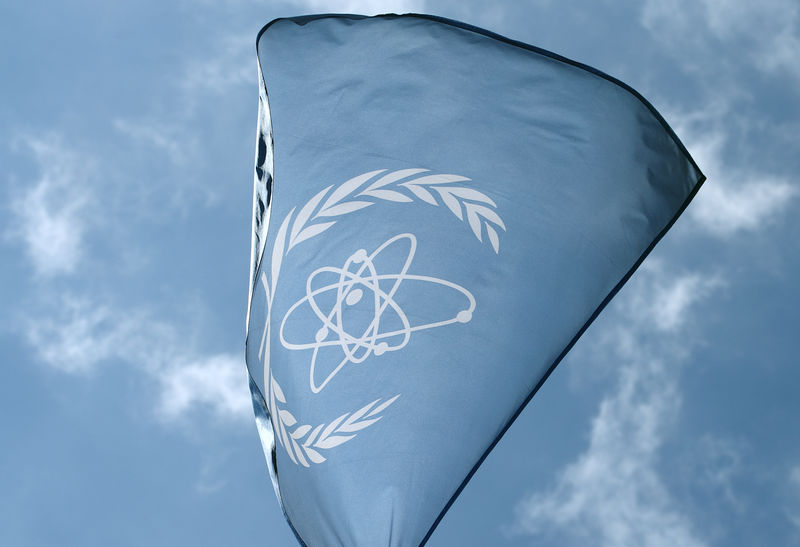By Luke Baker and Dan Williams
JERUSALEM (Reuters) - With a deal on Iran's nuclear programme drawing near, Israel is beginning to look at what comes afterwards and how best to position itself for the longer term.
Publicly, Israeli officials have not given up trying to influence what appear to be the closing stages of negotiations, although gaps could persist beyond an end-June deadline.
Energy Minister Yuval Steinitz, Prime Minister Benjamin Netanyahu's lead official on the issue, is exerting pressure where he can to try to tighten technical aspects of the deal.
"We are very worried," he told Reuters this week. "What we are seeing is a certain crumbling, or signs of a crumbling, even in the clauses that had looked very clear and settled," he said, suggesting a harder U.S. line was needed on inspections.
But away from the nitty-gritty of the negotiating table, Israeli officials broadly accept that a deal will be done and have begun examining how to align themselves to ensure Israel's interests are best protected if sanctions on Iran are lifted.
Israel's unresolved conflict with the Palestinians means it has no diplomatic relations with most of the region's Sunni Arab powers, but all oppose Tehran's backing of Shi'ite groups in the region and fear that, without sanctions, support will increase.
In recent years, Israeli officials have met counterparts from Egypt, Jordan, Saudi Arabia and the Gulf at nuclear non-proliferation talks in Switzerland, gatherings the Israelis say have helped melt a certain amount of ice.
There have also been meetings between Dore Gold, a senior adviser to Netanyahu recently appointed director-general of Israel's foreign ministry, and retired Saudi general Anwar Eshki, an informal effort to see where the two countries' interests coincide, especially on Iran. They appeared together at a Washington conference this month, but took no questions.
"There hasn't been a time when our interests and those of moderate Arab states have overlapped as much as they do now," said a senior Israeli official who is engaged in the region.
"I'm not saying this is going to develop in to some formal peace process. But there is a very strong coincidence of interests and that has allowed for regional dialogue."
With divisions over the Palestinians as sharp as ever, none of the Sunni Arab states in the region have played up any level of cooperation with Israel over Iran.
Saudi Arabia has always said it does not cooperate with Israel, a country which it does not recognise.
For its part, the United States is discussing boosting its defence assistance to Israel - in terms of both the quantity and quality of military equipment it provides - while talking to Jordan, Saudi Arabia and the Gulf about their defence needs.
In an interview with Israel's Army Radio on Wednesday, the U.S. ambassador to Israel, Dan Shapiro, discussed the emerging nuclear deal at length, before adding at the end when asked about Israel's military edge if Iran is freed from sanctions:
"We are ready now to hold a very, very detailed discussion with Israel about its needs should there be a deal with Iran, as we have already started to do with our allies in the Gulf."
"UNDER THE TABLE"
Given the geography of the region, and the concerns Israel and Sunni Arab states have about Shi'ite Iran gaining influence in an arc reaching from Lebanon via Syria to Iraq and on down to Yemen, some form of defence coordination might make sense.
It would potentially allow the Gulf states, Saudi, Egypt, Jordan and Israel to present a stronger buffer should Iran ever develop a nuclear weapon and the ability to deliver it - something Tehran says it has no interest in doing.
Israel is widely considered to have the only nuclear arsenal in the region, but does not acknowledge it.
Rather than coordination in the shape of a regional missile defence agreement or something similar, Israeli experts say it is more likely that the Sunni states and Israel would quietly share intelligence, something the Israelis say they are already doing, and cooperate when necessary.
"Indirect secret cooperation vis-a-vis Iran is happening with these countries and there is the possibility to deepen it," said Haim Tomer, a former head of international operations at Mossad, Israel's foreign intelligence agency.
"It's always easier to cooperate with intelligence sharing than it is when it comes to military assets," he said, adding that any coordination would remain "under the table".
At a time when the Middle East is in a period of tumult to match that of a century ago when many of its borders were drawn, Israeli officials say a new order may eventually emerge that makes closer regional ties a necessity.

That is true not only for defence but energy security, an issue on which Israel, with its large offshore natural gas reserves, is working on with Jordan and Egypt, the only two Arab states with which it has formal peace agreements.